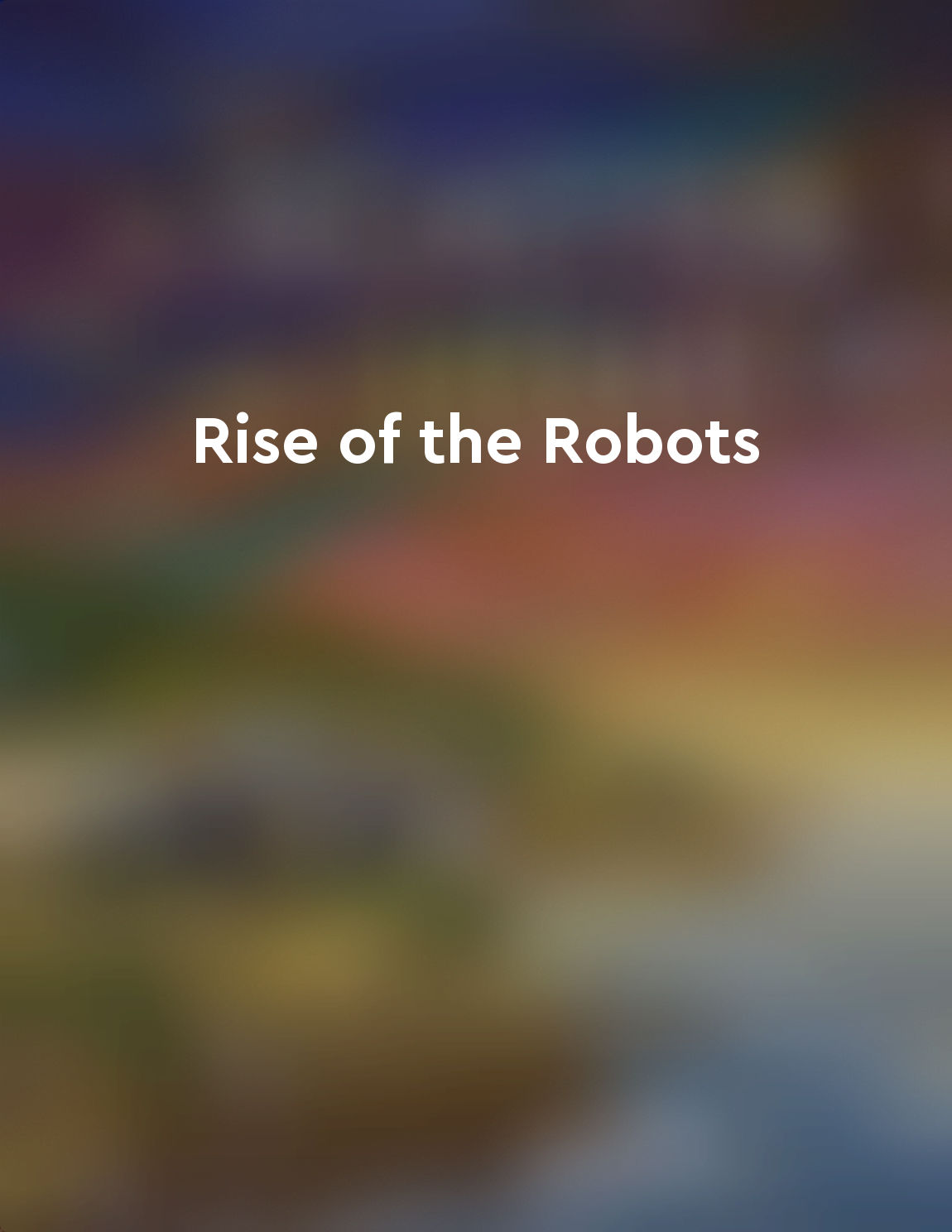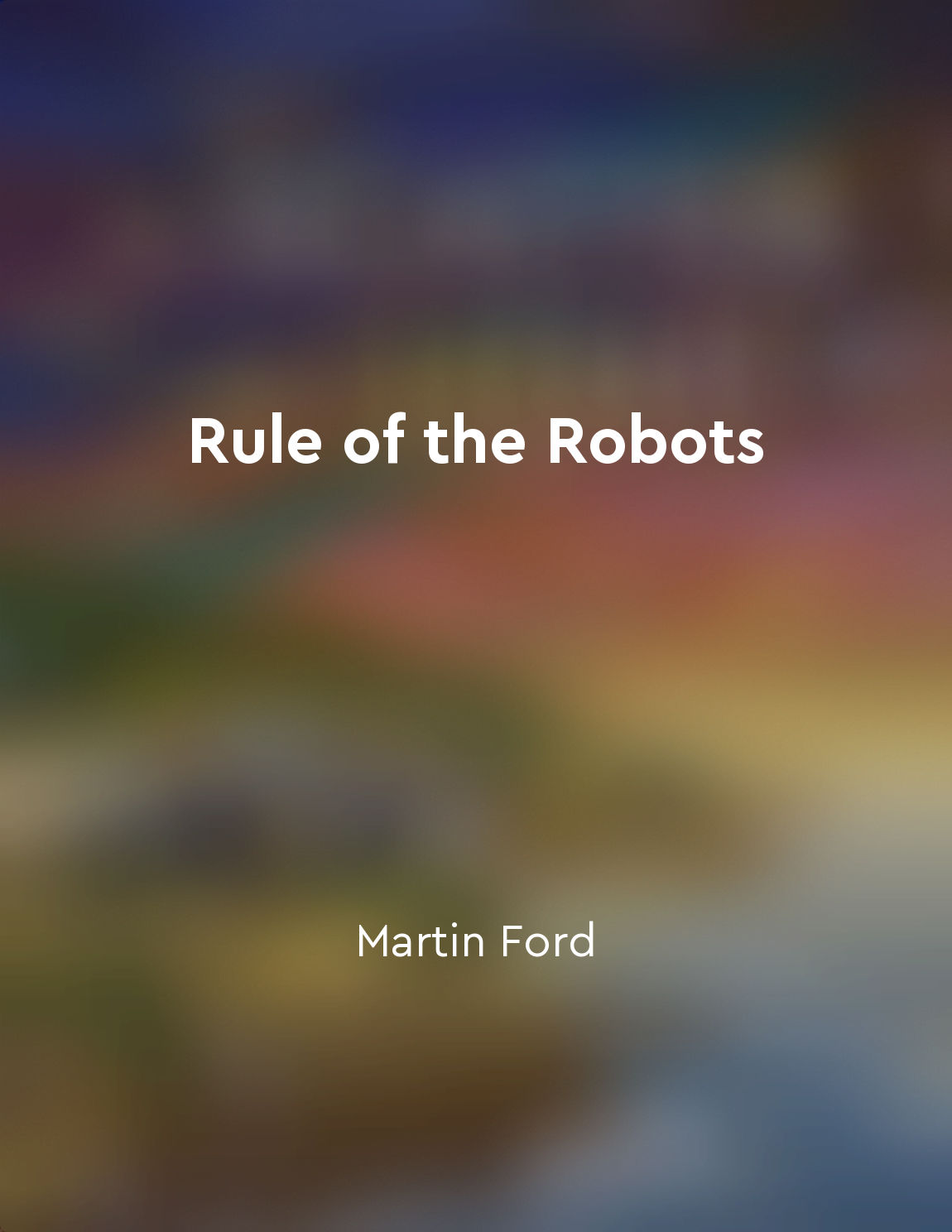Automation is changing the nature of work from "summary" of Work by James Suzman
Suzman delves into the profound transformations brought about by automation in the realm of work. The impact of automation is far-reaching, altering not just the tasks we perform, but also the very essence of what it means to work. Traditional notions of work as a means of survival are being reshaped by the rise of machines that can perform tasks more efficiently and effectively than humans. This shift raises fundamental questions about the role of work in our lives and the value we place on labor. One key aspect of this transformation is the increasing emphasis on skills that are complementary to automation. As machines take on more routine tasks, humans are required to develop a new set of skills that are not easily replicable by machines. This has led to a growing demand for workers who possess qualities such as creativity, critical thinking, and emotional intelligence. In this new landscape, the ability to adapt and learn quickly has become a crucial asset for individuals seeking to thrive in the age of automation. Moreover, the nature of work itself is evolving as automation enables greater flexibility and customization in the way tasks are performed. Workers are no longer bound by traditional methods of production, but are instead able to leverage technology to tailor their work to their specific needs and preferences. This has led to a rise in gig economy jobs and freelance work, as individuals seek greater autonomy and control over their work lives. However, while automation has the potential to increase efficiency and productivity, it also raises concerns about the impact on job security and income inequality. As machines take on more tasks, there is a risk of displacement for workers in industries that are heavily reliant on manual labor. This can lead to a widening gap between those who possess the skills necessary to thrive in the digital age and those who are left behind.- The rise of automation is forcing us to reevaluate our relationship with work and the role it plays in shaping our identities and sense of purpose. As we navigate this new era of work, it is essential to consider how we can harness the power of automation to create a more equitable and fulfilling future for all.
Similar Posts
It's about critical thinking
Critical thinking is the cornerstone of a liberal education. It is not just about memorizing facts or mastering a specific skil...
Technology can diminish users' sense of agency
The digital tools we use in our daily lives, from smartphones to GPS systems, are designed to make our lives easier and more ef...

The rise of robots poses ethical questions about the role of technology in society
As robots become more advanced and integrated into various aspects of society, they raise important ethical questions about the...

The rise of AI and automation is reshaping the job market, leading to unprecedented levels of inequality
As artificial intelligence and automation continue to advance, they are fundamentally transforming the job market. Traditional ...

Workers must develop new skills to remain relevant in a world dominated by robots
In a world where machines are increasingly capable of performing tasks that were once the exclusive domain of humans, it is bec...
Stay engaged with the world
In the fast-changing world of the 21st century, it is crucial to stay engaged with the world around us. This means keeping up w...
Connectivity is transforming how we live and work
The way we live and work is being fundamentally altered by the increasing connectivity of everything around us. This transforma...
AI has the potential to create massive wealth and disrupt traditional industries
Artificial intelligence stands at the forefront of a technological revolution that has the power to reshape industries and econ...

The power of technology lies in our ability to understand and manipulate it
Technology is not just a tool that we use in our daily lives; it is a force that shapes our reality. The power of technology li...

Society must find ways to support workers affected by automation
As technology continues to advance at an unprecedented pace, the impact on the workforce is becoming increasingly apparent. Aut...

